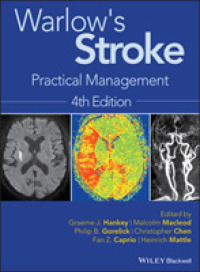Description
(Text)
Marcus Marulus or Marko Maruliæ (1450-1524) is known as the Father of Croatian Literature and as the first Croatian Bible scholar. Much of his literary work is inspired by his study of the Sacred Scriptures. This book is an introduction to Marulus' central religious matrix, the Latin Bible, and his use of it. We are fortunate to have access to Marulus' desk copy of the Biblia Latina in four volumes, with introductions and commentaries that customarily accompanied the Bibles in the fifteenth century. This book is the first ever to investigate Marulus' biblical hermeneutics, and it lays the groundwork for further literary and theological studies on Marulus and his time. The book is accompanied by a DVD of the four volumes of the Biblia Latina of 1489 with Marulus' handwritten marginalia.
(Author portrait)
Posset, FranzDr. Franz Posset, German-American independent scholar of historical theology, holds a Diplom in Catholic Theology from the University of Tübingen and a PhD in Religious Studies from Marquette University in Milwaukee, USA. He is an internationally known scholar of Reformation theology and history, and a regular contributor to Colloquia Maruliana. His publications include Pater Bernhardus: Martin Luther and Bernard of Clairvaux (1999), The Front-Runner of the Catholic Reformation: The Life and Works of Johann von Staupitz (2003), Renaissance Monks (2005), and The Real Luther: A Friar at Erfurt and Wittenberg (2011). He is the winner of the first annual Natalie Zemon Davis Prize (Canada) for superb scholarship for his contribution: «Polyglot Humanism in Germany circa 1520 as Luther's Milieu and MatrixÂ" (2006).Posset, Franz Dr. Franz Posset, German-American independent scholar of historical theology, holds a Diplom in Catholic Theology from the University of Tübingen and a PhD in Religious Studies from Marquette University in Milwaukee, USA. He is an internationally known scholar of Reformation theology and history, and a regular contributor to Colloquia Maruliana. His publications include Pater Bernhardus: Martin Luther and Bernard of Clairvaux (1999), The Front-Runner of the Catholic Reformation: The Life and Works of Johann von Staupitz (2003), Renaissance Monks (2005), and The Real Luther: A Friar at Erfurt and Wittenberg (2011). He is the winner of the first annual Natalie Zemon Davis Prize (Canada) for superb scholarship for his contribution: «Polyglot Humanism in Germany circa 1520 as Luther's Milieu and MatrixÂ" (2006).
(Table of content)
nalia for 2 Samuel: Nathan's Prophecy
3. 15. The Illustrated Books of Kings and the Excised Illustration of King Ahaz's Sundial
4. The Second Volume of the Old Testament
4. 1. Marginalia for 1 Chronicles: The Spiritual Meaning of the Four Gates; Some Names to Remember; David's Prayer
4. 2. Marginalia for Ezra: Disregarding Sallust and Virgil, Marking the Words on God's Help and Protection
4. 3. Marginalia for Nehemiah: The Mystical Sense of the Gates
4. 4. Marginalia for Tobit: Prayer Answered
4. 5. Marginalia for Judith: A Canonical Book with a Lie; No Sex Appeal
4. 6. Marginalia for Esther: The Issue of Adoration
4. 7. Marginalia for Job: 'My Redeemer Lives'; the Nostrils of the Hippopotamus
4. 8. Marginalia for the Psalms: Christ, Trinity, Church and the Eucharist
4. 8. 1. The Seven Penitential Psalms
4. 8. 2. Eucharistic Psalms
4. 9. Marginalia for the Books of Solomon
4. 9. 1. Marginalia for Proverbs: The Mystery of the Eternal Generation of the Son; the 'Ideal Wife'
4. 9. 2. Marginalia for Ecclesiastes: Knowledge and Wisdom
4. 9. 3. Marginalia for the Song of Songs: The Church from Abel on; One Faith and One Church of the Old and of the New Testament
4. 9. 4. Marginalia for the Book of Wisdom: Solomon Discerns Christ's Passion
4. 10. Marginalia for Jesus Sirach, called Ecclesiasticus: Fulfi llment at the Time of Christ; 'Sons of Israel'
5. The Third Volume of the Old Testament
5. 1. Marginalia for the Book of the 'Evangelist' Isaiah: Christ and David
5. 2. Marginalia for Jeremiah: Christ the Shepherd; Eucharist, Church History
5. 3. Marginalia for Baruch: A Christogram in an Apocryphal Book
5. 4. The Illustrated Ezekiel: The Four Evangelists; Jerusalem, the Temple, and the Church
5. 4. 1. On Lyra's Second Postil for Ezekiel
5. 5. Marginalia for Daniel with the Story of Susanna
5. 6. Marginalia for the Twelve Prophets
5. 6. 1. Marginalia for Hosea: Christ; 'Flesh' or 'Recess'; Eucharist
5. 6. 2. Mar








